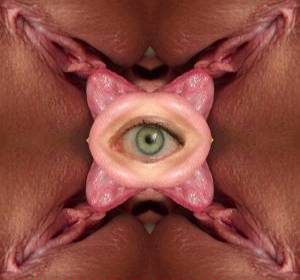
Psychosocial Outcomes
A recent 40 year follow up of lung cancer cases found a doubling of the risk of lung cancer among conscripts who had smoked cannabis 50 or more times by age 18. This survived adjustment for cigarette smoking (which showed the expected dose response relationship to lung cancer) but the ability to fully adjust for tobacco smoking was limited because 91% of heavy cannabis smokers at age 18 also smoked tobacco.
There is more cause for concern about recent reports of an increased risk of testicular cancer among cannabis users. Daling et al reported a case control study of cannabis use among men diagnosed with a testicular germ cell tumor and 979 age-matched controls. They found a higher rate of cannabis use among cases (OR=1.7 (95% CI: 1.1, 2.5)). The risk was higher for a nonseminoma (OR= 2.3 (95% CI: 1.4, 4.0) and it increased for those who began to use cannabis before the age of 18 and those who used cannabis more than weekly. These findings have since been replicated in two further US case-control studies.
These studies found a doubling of risk of a nonseminoma testicular tumors among cannabis users and suggestive evidence that risk increased with earlier initiation and more frequent use of cannabis. The replication of these findings in three case-control studies indicates an effect requiring further investigation. It is also a biologically plausible effect given that cannabinoid receptors are found in the male reproductive system.
There have been consistent associations found between regular (especially daily) cannabis use and adverse health and psychosocial outcomes, relationships that have often shown dose-response relationships, and that have persisted after statistical adjustment for plausible confounding factors. In the summary that follows, the conclusions that can now be reasonably drawn in the light of evidence that has accrued over the past 20 years.
Adverse effects of acute use
- Cannabis does not produce fatal overdoses like opioids.
- There is a doubling of the risk of car crashes if cannabis users drive while intoxicated.
- This risk increases substantially if users also consume intoxicating doses of alcohol.
- Maternal cannabis use during pregnancy modestly reduces birth weight.
Adverse effects of chronic use
- Regular cannabis users can develop a dependence syndrome, the risks of which are around 1 in 10 of all cannabis users and 1 in 6 among those who start in adolescence.
- Regular cannabis users double their risks of experiencing psychotic symptoms and disorders, especially if they have a personal or family history of psychotic disorders, and if they initiate cannabis use in their mid teens.
- Regular adolescent cannabis users have lower impaired educational attainment than non-using peers.
- Regular adolescent cannabis users are more likely to use other illicit drugs.
Regular cannabis use that begins in adolescence and continues throughout young adulthood appears to produce cognitive impairment but the mechanism and reversibility of the impairment is unclear. - Regular cannabis use in adolescence approximately doubles the risk of being diagnosed with schizophrenia or reporting psychotic symptoms in adulthood.
All these relationships have persisted after controlling for plausible confounders in well-designed studies but some researchers still question whether adverse effects are causally related to regular cannabis use or explained by shared risk factors.
Physical health outcomes
- Regular cannabis smokers have higher risks of developing chronic bronchitis but it is unclear if it impairs respiratory function.
- Cannabis smoking by middle aged adults probably increases the risks of myocardial infarction.
Source: What has research over the past two decades revealed about the adverse health effects of recreational cannabis use?
by Wayne Hall
Paper presented at Through the Maze: Cannabis and Health International Drug Policy Symposium Auckland, New Zealand, November 2013
For over two decades, cannabis, commonly known as marijuana, has been the most widely used illicit drug by young people in high-income countries, and has recently become popular on a global scale. Epidemiological research during the past 10 years suggests that regular use of cannabis during adolescence and into adulthood can have adverse effects. Epidemiological, clinical, and laboratory studies have established an association between cannabis use and adverse outcomes. We focus on adverse health effects of greatest potential public health interest—that is, those that are most likely to occur and to affect a large number of cannabis users. The most probable adverse effects include a dependence syndrome, increased risk of motor vehicle crashes, impaired respiratory function, cardiovascular disease, and adverse effects of regular use on adolescent psychosocial development and mental health.
Can Marijuana Cause Testicular Cancer Medical Course
For Educational Use Only - Fair Use - Can smoking marijuana cause testicular cancer Urologist Dr. David Josephson weighs in.
Does Smoking Weed Cause Pain In Your Testicles (My Story) Balls Hurting
Does weed effect your balls. Are your balls hurting and do you smoke weed? This is my true story about my experience with smoking weed and testicular pain.
Smoking Marijuana Tied to Testicular Cancer - WebMD
Smoking marijuana may play a role in a man’s risk for testicular ... Smoking Marijuana Tied to Testicular Cancer. ... like having an undescended testicle.
Marijuana and Testicles.. Are Your Family Jewels Safe?
Men are 46% more likely to be regular marijuana smokers than women. So, guys here are a few things you need to know about marijuana and testicles

Everything you need to know about what pot does to you, from 'sustained hilarity' to 'brain noise'
- National PostNot only the brain, but the spleen, uterus, testicles and other tissue have cannabinoid receptors. THC, the principal active component of weed, mimics a natural cannabinoid called anandamide, the “bliss molecule.” When smoked, THC quickly diffuses to...

The Essential Facts About Marijuana And Testicular Cancer
- The Fresh ToastAs seen with the many facets of the novel medical marijuana field, there are opposing study results concerning the benefits of cannabis use in relation to testicular cancer. Most notably, some studies report that regular use of marijuana heightens “the...